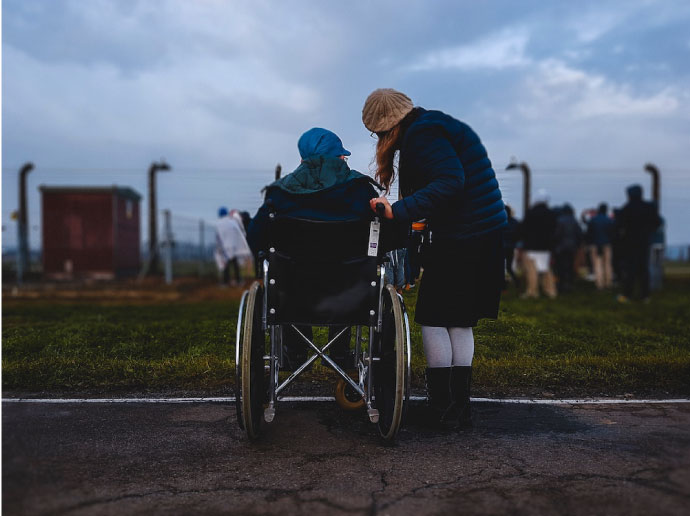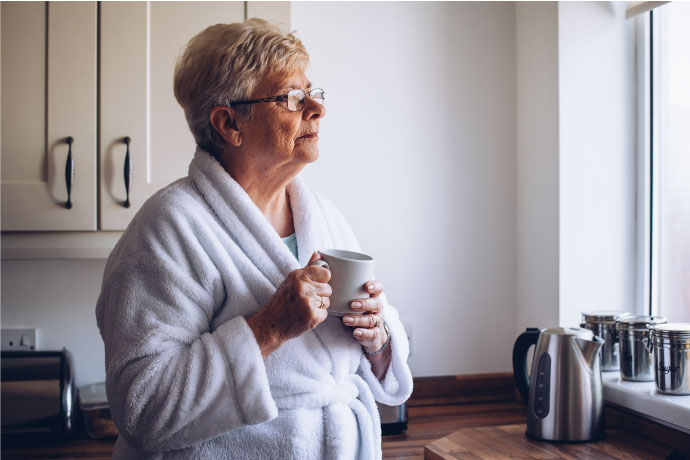
Aging in place is the preferred way of life for most seniors. Studies show that 90% of seniors prefer to live in their homes.
However, as their health and capacity decline, they search for other, more suitable long-term care options. These include in-home aid, nursing homes, or assisted living communities.
If you’re considering such options for yourself, your parent, or another relative, you definitely want to learn everything there is to know about their advantages and disadvantages. Here’s a complete list of the pros and cons of assisted living to help in your decision-making.
Benefits of Assisted Living
Assisted living is an option that can be taken into consideration for seniors who want to stay independent and active, but at the same time need around-the-clock assistance with some of their daily activities.
Person-Centered Care
The support seniors get in assisted living facilities depends on the amount of support they need to function. It can be as little as doing housework or laundry for some residents, but it can also include help with bathing and getting dressed.
The support provided is tailored to the needs of each one of the residents, enabling them to keep their independence and privacy within their capacity in a safe environment.
Some of the assisted living facilities also include options for persons who need more specialized care, enabling them reasonable independence. For example, memory care is a special section of homes dedicated to elderly persons with Alzheimers’ disease, while mobility care provides support to the elderly with mobility issues.
Assistance with Daily Activities
As we’ve already mentioned, assisted living is focused on providing help with daily living activities.
The support is customized to best meet the needs of the residents and helps them with:
- Bathing and grooming
- Dressing
- Toileting
- Eating
- Medication
- Transportation
- Home maintenance, etc.
Living in such a facility means all of the hard work, such as mowing the lawn or constant cleaning, will be taken care of. Going shopping, visiting community events, or going to doctor’s appointments won’t be a problem anymore, as the facility will arrange transportation in all these cases.
The number of daily activities a resident needs help with will determine the level of care provided, as well as the cost of the service.
Home-Like Environment
An assisted living environment provides a greater level of privacy and control to its residents when compared to a nursing home, and it can pretty much resemble a home environment.
Many assisted-living communities allow their residents to personalize their living space so that they can enjoy all the familiarity and comfort they’re used to.
New Social Opportunities
Elderly people who are living alone face the risk of loneliness and depression, which significantly impacts their quality of life.
An assisted living facility offers its residents a chance to spend time together – they can watch TV shows together, play games, and talk to their fellow residents. Also, there all sorts of activities seniors can take part in so that they can feel more productive, as well as socialize and meet new friends.
Downsides of Assisted Living
Apart from the positive effect assisted living can have on its elderly residents, it has its drawbacks too. Here are some you should be aware of.
Stress of Adjusting
Moving into an assisted living facility is often the result of unfortunate circumstances, such as a progressive illness or the loss of a partner. It’s far less often a planned choice of the elderly person.
That’s why a senior moving into this type of care can have difficulties in adjusting to a new environment and new rules they need to adhere to.
There will be new noises and new people they have to get used to, their meals will be scheduled, and they will probably have to give up on certain things that are dear to them, such as their pets.
All this can have numerous negative effects on the elderly, so it’s crucial that they know what to expect and prepare for it.
Limited Privacy
The seniors moving into assisted living should be aware that their privacy will be limited.
They will most likely have a roommate to share their living space with, and they have to get used to the staff checking in on them every once in a while.
If they value their privacy a lot, this can sometimes feel overwhelming.
Limited Medical Care
While assisted living facilities do provide some form of medical care, they don’t have extensive health care on-premise, as opposed to nursing homes.
Assisted living is a good option for seniors who are generally in good health. Those who need specialized, intensive health care and are totally dependent on others might require a higher level of care than assisted living can provide.
It Can Be Expensive
The major drawback of assisted living is its cost, as it is not covered by Medicare. Assisted living facilities often include only a small number of activities in their base monthly price.
In addition to monthly costs, personal care services, such as laundry or medication reminders, are charged additionally.
Still, for those who are generally in good health, it’s a cheaper and often a more suitable solution than a nursing home.
Wrap Up
Choosing the right care solution will depend on long-term health needs as well as personal preferences. Explore your options thoroughly, and see what will best suit your or your loved one’s needs.








